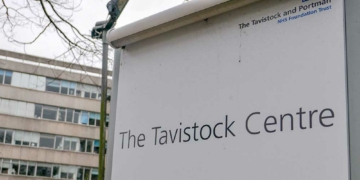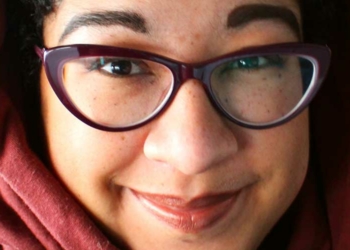Lesbian Immigration Support Group is a grassroots organisation championing some of the most vulnerable members of our community. They’ve run in Manchester since 2007, offering practical, social, and emotional support to lesbian and bi women seeking asylum from the violent homophobia of their home countries. Jane Traies, has written a book about LISG with the goal of raising funds for a group run by and for lesbians, and – crucially – raising awareness of their life-saving work.
Over 1,500 people claim asylum in the UK every year, fleeing persecution in response to their sexuality. Yet it’s one of the least understood issues facing our community. “I’m reasonably well connected in the lesbian world, the LGBTQ world, and I didn’t know this stuff before. So, it makes me think that it’s not widely known. People get confused with the difference between immigration and asylum, or they’re prejudiced, they mix it up in their minds with Brexit even…”
Having devoted her writing career to documenting lesbian lives and community, there are few women better placed than Jane to bring clarity. Her books about older lesbians struck a chord with many – including the women of LISG.
“Because the Home Office obviously thought that if you were an old lady, if you were a grandmother and a great-grandmother, you couldn’t possibly be a lesbian. We know well that you can be a lesbian and a grandmother, that you can be old!”
“A woman’s claim had been rejected by the Home Office, as so often happens, and Sorrell [a LISG volunteer] was telling me that they were lost as to how to help and support this woman because she was very unlike the other women LISG had supported in that she was over 70, she was a much older lesbian. Sorrell asked me ‘is there anything in your research about older lesbians that might be useful to us in arguing her case at the Home Office?’ Because the Home Office obviously thought that if you were an old lady, if you were a grandmother and a great-grandmother, you couldn’t possibly be a lesbian. We know well that you can be a lesbian and a grandmother, that you can be old!
“I was full of enthusiasm. I thought ‘Yes! There’s so much research I could use!’, and I wrote a very long letter.” Unfortunately, it took six years of struggle for this older lesbian to be granted asylum. But the day of that hearing is one that Jane will never forget.
“All the women turn out to support somebody. They all came to the court. It was the most amazing thing. The public gallery didn’t have enough chairs for them. Because they’d all come to support her and to encourage her; that’s what they do for each other. It’s a thing to witness. So that was a happy day, and the day I thought ‘there’s a book in this! People need to know about this group, about their work.’
“By then I realised that most people don’t have any idea what a dreadful experience it can be, applying to the Home Office for asylum in the UK. Almost all of them have had really horrible experiences once they get to the UK, never mind what happened to them before they’d come here. We thought we should raise some knowledge about that.”
Almost every woman interviewed disclosed experiences of sexual or physical violence – often both. Corrective rape is a recurring theme. “It was hard,” Jane says, “but it wasn’t as hard for me as it was for them – that’s what I have always to bear in mind.”
Writing Free to Be Me was a challenging process. Almost every woman interviewed disclosed experiences of sexual or physical violence – often both. Corrective rape is a recurring theme. “It was hard,” Jane says, “but it wasn’t as hard for me as it was for them – that’s what I have always to bear in mind.
“I had some experience already of listening to and working with distressing stories, and I suppose over my long life to some extent I’ve learned how to look after myself in that respect, but it was difficult. Partly because of that, but partly because I always feel such a heavy sense of responsibility towards people with their own stories whom I’m working with and publishing. With the older lesbians I felt deeply responsible. At the time I was worried about keeping them safe, about saying exactly what they wanted me to say, and so on. But with this group of women they were so much more vulnerable, even, and I really stress a lot until the very end when we’ve got the final versions of the stories.
And I had to keep on sending them back to the women who had told their stories and say ‘are you sure this is right?’ We went over and over them because I was so concerned that we shouldn’t publish anything that would do anybody any harm, or that they didn’t want to say. The first people to get copies were obviously women whose stories were in the book – they were pleased, I think. They were all pleased. That was the reward.”
Jane finds great fulfilment in preserving the details of lesbian lives. “For some years now I’ve become interested in oral history, life history, as a way of uncovering stories that have been marginalised or not told – particularly within the lesbian community.”
Order Free to Be Me here.
Donate to LISG here.
























Comments
No comments yet, be the first to leave a comment.